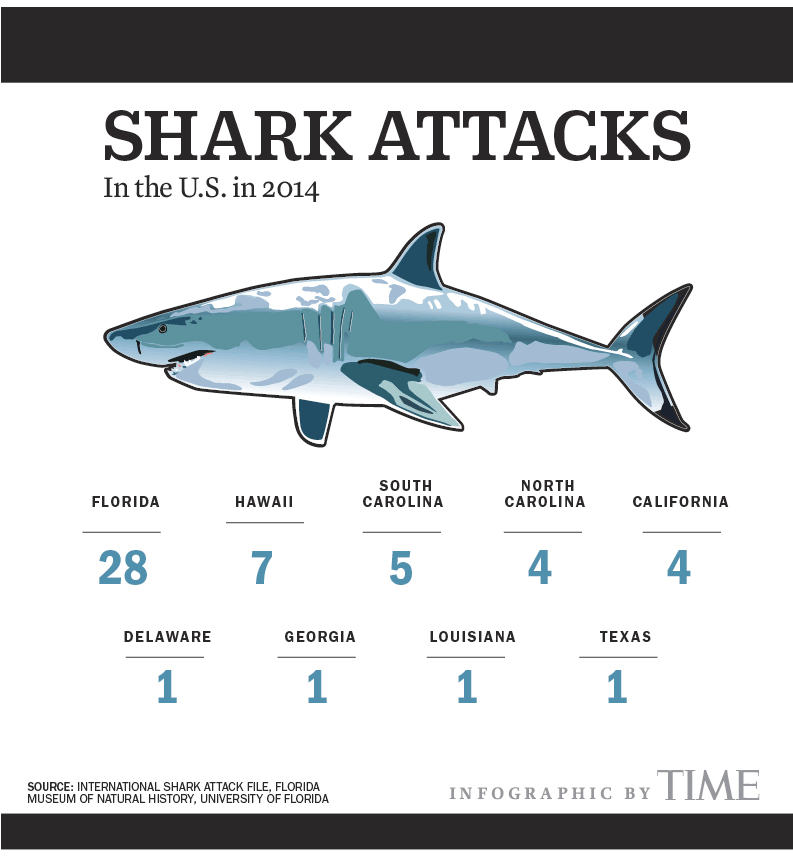
From the vicious predator portrayed in Jaws to Shark Week on the Discovery Channel, shark attacks occupy a unique place in the public imagination. That fascination was on full display this week when two separate shark attacks in North Carolina spurred a media feeding frenzy.
Around the world, shark attacks are rare. But when they do attack, they’re more likely to bite in the United States than in any other country.
Around two-thirds of all shark attacks occur in U.S. waters, according to George Burgess, director at the Florida Program for Shark Research. The U.S. is prime territory for human-shark interactions due to the country’s hundreds of thousands of miles of coastline and the American habit of relaxing on the beach, Burgess explained.
But no place is a better draw for both sharks and humans within the U.S. than Florida.
Beachgoers in the state experienced 28 shark bites in 2014, and there have been 10 already this year, according to the International Shark Attack File at the University of Florida.
And if you really want to see where sharks meet humans, head to Volusia County in Florida, home to Daytona Beach. The county had 10 shark bites last year alone.
“It’s a good place to be a shark, it’s a good place to be a human,” said Burgess of Florida’s coastline. “As a result, it’s no surprise that Florida would lead the world in shark attacks.”
No matter where you go, however, shark attacks are rarely fatal. There’s been just one fatality this year in the U.S.
More Must-Reads from TIME
- Cybersecurity Experts Are Sounding the Alarm on DOGE
- Meet the 2025 Women of the Year
- The Harsh Truth About Disability Inclusion
- Why Do More Young Adults Have Cancer?
- Colman Domingo Leads With Radical Love
- How to Get Better at Doing Things Alone
- Michelle Zauner Stares Down the Darkness
Write to Justin Worland at justin.worland@time.com